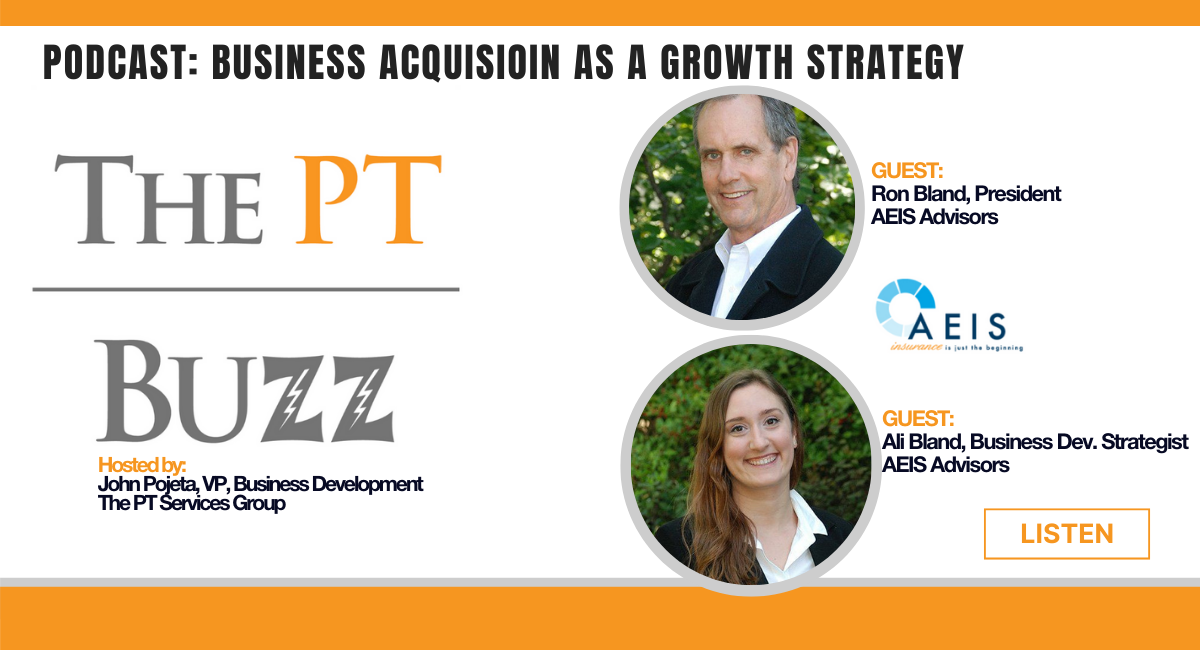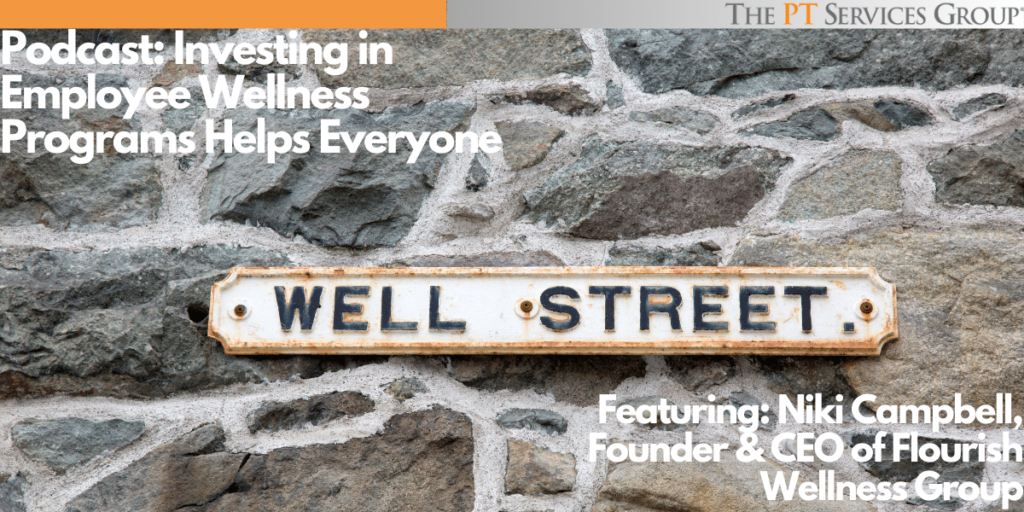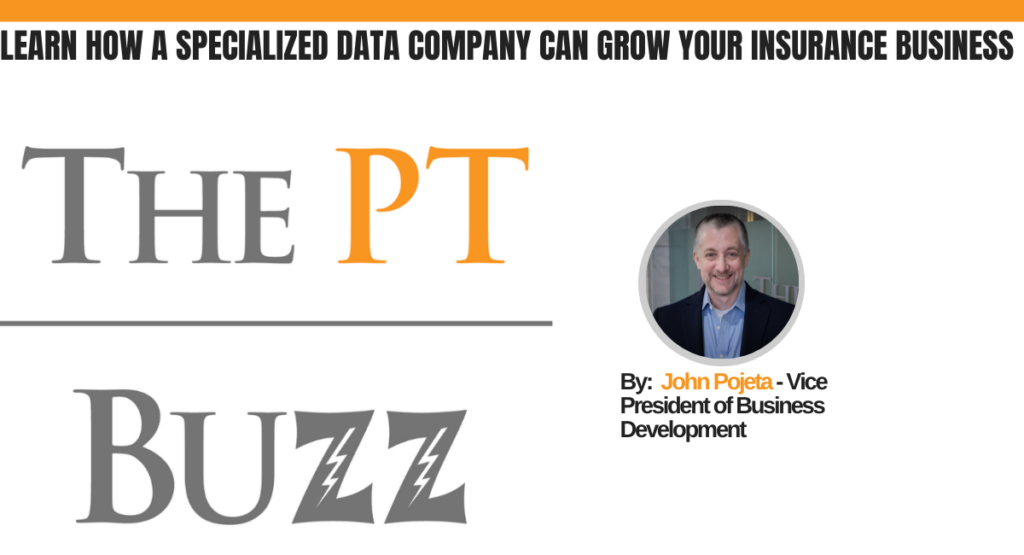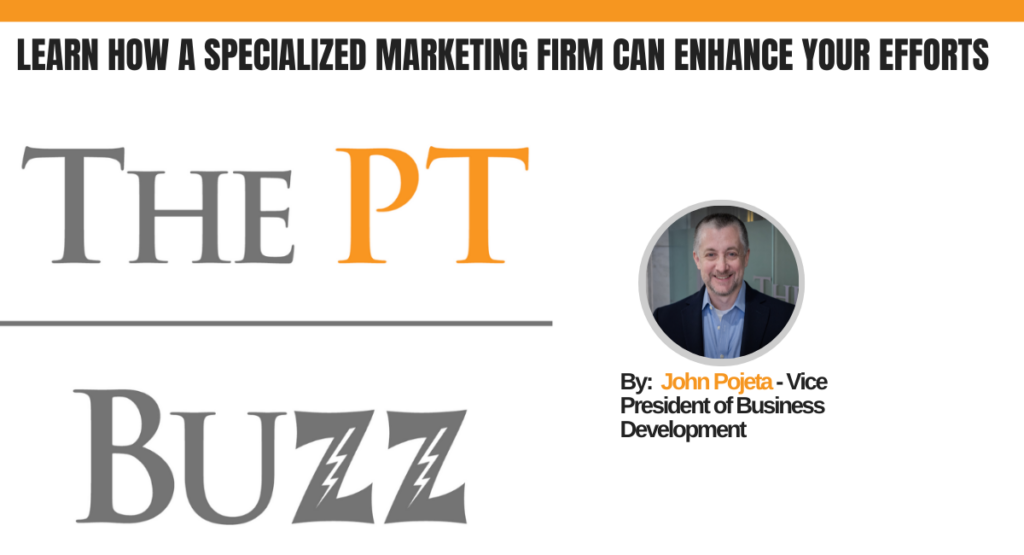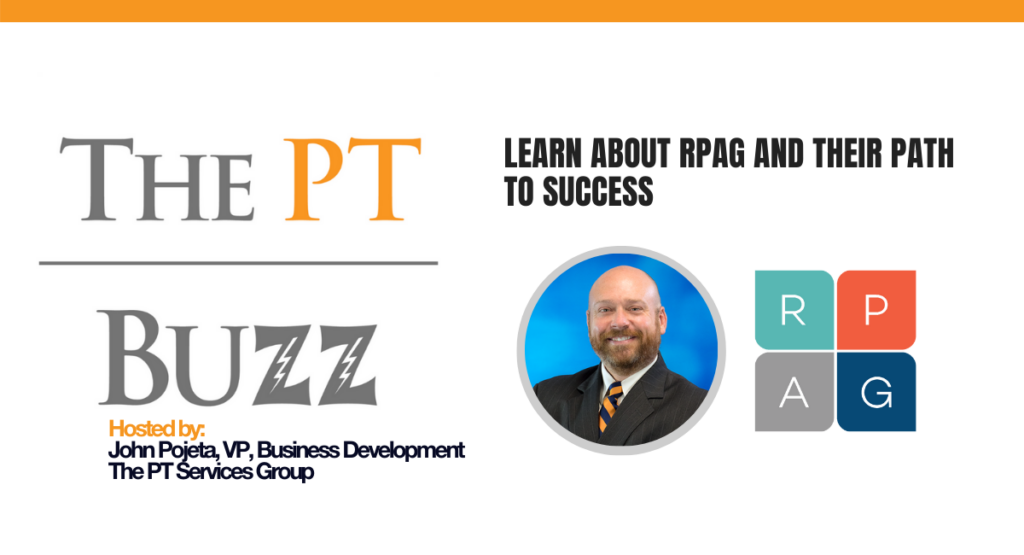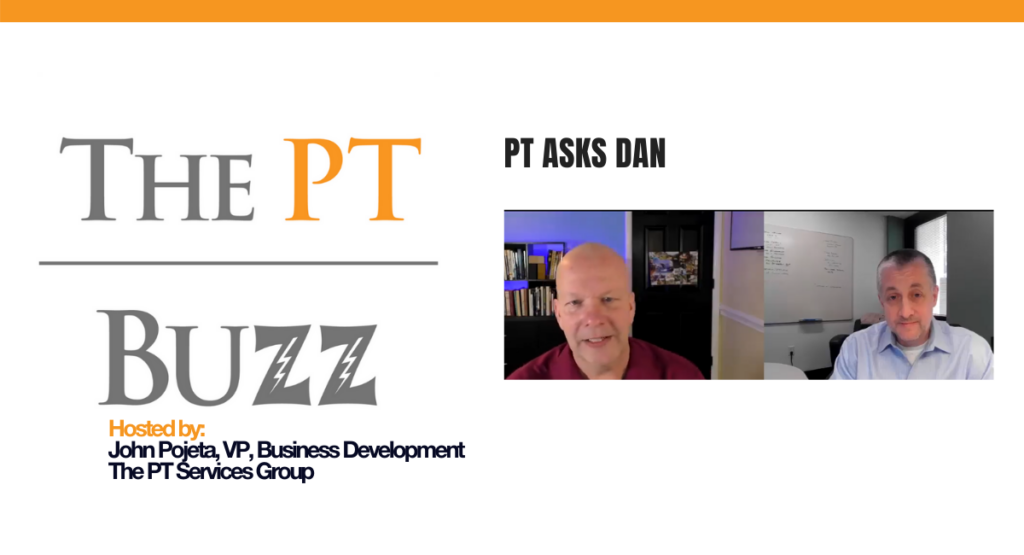In our newest episode, John Pojeta from PT welcomes father/daughter team Ron and Ally Bland of AEIS Advisors in San Mateo, California. Ron and Ally share how their business has seen success in growth through acquisitions of other companies or books of business. They share challenges they’ve encountered and tips that have helped them successfully employ this strategy. Tune in to gain some insight that can help you in the new year.
Where to Listen/Subscribe














Podcast Resources:
Any and all resources we mentioned in the podcast can be found here. Looking for something not here? Contact us, we’d love to help you out.
Guest Bios:
 Ron Bland, President, AEIS Advisors
Ron Bland, President, AEIS Advisors
Ron is one of the most accomplished insurance professionals in the Bay Area and has been in the industry since 1985. Ron’s ability to understand the business owner’s perspective allows him to create plans that maximize coverages while limiting unnecessary costs to the client. His achievements in the insurance industry are numerous as he is on various Agent Input councils and an exclusive member of the Million Dollar Round Table which includes having achieved the top of the table status (top 1% of all life/health agents). Additionally, Ron was selected to be a speaker at the 2021 Top of the Table Conference.
 Ali Bland, Business Development Strategist, AEIS Advisors
Ali Bland, Business Development Strategist, AEIS Advisors
Alyssa officially joined AEIS in 2017. When she first joined AEIS, she worked as an admin assistant. In 2019, Alyssa became the Business Development Strategist. She handles Marketing and Partner Relations for AEIS. Alyssa is honored to be named as one of the Top 100 Women of Influence of 2020 by the Silicon Valley Business Journal.
Podcast Transcript:
John Pojeta: Hi everyone, John Pojeta here with the PT Services Group. I hope you’re doing well. And thank you for joining me for another episode of the PT Buzz and today’s conversation is unique in the sense of, we frequently spend time talking about growth through client acquisition and some of the traditional methods and today’s conversation is with Ron and Ally Bland with AIS Advisors out of San Mateo.
And they are a father daughter team. And this conversation is around practice purchases. So they’re at specifically in the health and welfare space. And this is about approaching others who are in the same space, who would consider now or in the future selling their practice. And it’s a conversation that we know a lot of advisors.
I would like to be having, sometimes I’m not quite sure where to start or how to develop that. And that’s what we try and bring. They have a lot of experience, Ron and Ally doing this over many years, and it’s a chance to hear from somebody was success. Stories was stumbles with all the growing pains that go along with it, and some opportunities on where you can begin.
If it’s a space you want to consider as well. So thanks again for joining me and I hope you enjoy. With that Ron alley. Welcome. Thank you for taking the time. And if each of you could give us a little bit of background, tell us about the story of the firm and how you got involved.
Ron Bland: Oh, absolutely. I’m going to let Ally lead off on that and then I will join it now.
Ally Bland: So my name is Ally bland. I am Ron’s daughter and I very reluctantly joined the business about five years ago and now am very happy that I did. So I wear many hats in the business, but my main roles are kind of marketing and partner relations here at advanced to state and insurance services.
And I help my dad. The marketing around buying books of business and kind of help with the marketing campaigns, whether it’s telemarketing, our website page or kind of emails to our prospects for buying books of business.
Tap/Click to View Full Transcript
Ron Bland: Yeah. So actually, you know, I’ve been doing it for 35 years and we do health insurance and life insurance, et cetera.
And about 22 years ago, I decided how could I leverage myself rather than just chase individual clients? And that’s when I started to buy books of business before the aggregators got involved, for lack of a better phrase, but we’re out in California. We’re in the small group market top of the table for life insurance, we deal with.
But one of the things we want to take a look at was how can I leverage myself? You know, not just go after the individual clients, but, but start to purchase people’s books of business. And one of the things we found that in actually one of the accountants told me this is that they buy. Practices of CPAs, just like we buy practices of, of individual books of business is that every client has a couple of whales on their books and they have a tendency to keep those books at business and to the, until they lose one or two of the whales and then they become motivated to do so.
So we started buying books of business. I think we’re up around 14 or 15 books of business that we buy. Some are. You know, 30,000 a month, some are 5,000 a month. Some are 2000 a month. Some are 10,000 a month. They’re all over the map. But basically, we found it very profitable to do so because.
Most of these people that we buy our garage brokers, John, that is their one-man shops. They’re by themselves, they’re in their sixties and seventies and they, they, they, they kind of feel tied to it. They have a loyalty, the client, they don’t want to just give them to a big aggregator. They want to give them to a, a shop where they’re known.
They’re going to take care of, but they’re not really taking care of the clients correctly. They’re not. Keeping them in compliance and making them aware. As a matter of fact, the, the item where we’ve been very successful with your firm using it is the transparency law. You know, the one that takes effect December 27th and that, well, what do you mean I have to do that?
Well, what do you mean the client’s going to get fine? So we find that as a very, very lucrative aspect to bring out, you know, when every investment decision, what I learned 35 years ago, it’s always done by. Fear or greed and fear that they’re going to get sued or greed that they want to keep. And they enjoy the money for as long as possible.
Then they lose one of the, two of the whales that I was alluding to earlier and that’s becomes their motivational to sale. And then they wished they would’ve sold earlier. So that’s kind of the, when we talk to people is just more of a, factfinder just like you would do a regular finder for any other case.
John Pojeta: Yeah, Ally, let me circle back to one thing that you said, because I think your comments happens a lot in this space. We meet with a lot of advisors and producers who have a family element to the practice. But you mentioned you were, you were hesitant or it made you pause before you came on board. And I think there’s a lot of realness for that in, in people in the field in general.
What, what made you pause or what made you hesitate a little bit?
Ally Bland: I think we can all agree that joining the insurance industry is not the sexiest industry. A young person can join. It’s not a tech industry that has all the kind of lunches every day or stock options or kind of all the perks that a lot of these other industries are catering to my age.
About, so I think that was kind of my biggest pause. There’s also a big pause about joining your family business and working with your parents on a day-to-day basis and how to navigate that relationship. I think what gave me pause was I thought it was just going to be an interim position while I figured out what I wanted to do.
And then as I got into it worked a couple of days a week. That turned into full-time that turned into a couple of years. I’ve really loved working with my dad and being a part of the business he’s been able to build and see the business that I saw as an outside perspective growing up and actually be in the, in the business and like day-to-day workings.
It’s been really cool and I actually really like it and I’m really glad I kind of let my head trash. Stop me or like, not stop me from getting into the business. Yeah,
John Pojeta: no, that’s a great, it’s a great story. And I think it happens more often than we’re willing to admit that head trash side of our hesitation that comes out.
So it’s a great, it’s a great piece. So one of the things you mentioned, Ron, and talking about one-man shops and their desire to care for the people that they’ve built, sort of their baby, that they’ve built and how they view that. You’re really acknowledging the fact that there’s an emotional element to.
This kind of transition and how they hand it off and when it plays out and do, they trust in the person that they’re cutting a deal within essence to do so, can you speak a little bit more to the emotional side that you see as you, as you talk to people and where that helps them maybe hurts?
Ron Bland: Absolutely.
So that we’re Hertz is that it’s getting them to admit that it’s time to move. For that, where it helps is, you know, pre COVID now we do zoom, but we, I, we go to each individual client and we get the broker of record letter. And so it gives a chance for the old broker to say that, Hey, look, I’ve done my due diligence.
Ron’s the guy that we’re going to use. We’re picking him. And it’s also a chance for them to say goodbye to the old employees. So we get that bonding episode going on. So it’s a tremendous advantage from that standpoint, but we go to each individual client, our resume, you know, COVID era resume individual client, and I’m talking about group business, the individuals, we just do a block transfer.
But, but unless it’s a large client that, you know, a possibility of a life insurance sale, but it’s, it’s, it’s also a lot of the fact-finding is, is finding out from the clients who the whales are. Cause you don’t really know, you know, it’s not like somebody who’s going to share OYO six apartments in downtown San Mateo apartment buildings, but it’s just getting to know them and getting to know their book and who’s high maintenance and who’s low maintenance and who, which owner’s wife, you need to be afraid of. And you know, those kinds of things to really get, to really get to know the book. The only negative thing when you buy a book of business is usually the owners are plus or minus five years of the broker that you’re buying from. So usually what you’re taking a look at, or what I take a look at is depending on if it’s a, you know, an 80-person group we’ll structure the deal differently than if it’s eight, 10 person groups, but it’s just getting a chance to know them and then know the, know the owners and find out what their legacy planning is, et cetera. Yeah.
John Pojeta: Yeah. So w when do you remember the first deal that you closed?
Absolutely. Okay. So take me back there for a moment in the sense of a couple of things. One, is it, is it something that you just sort of stumbled across or was there a concerted effort in there and what did you learn?
Ron Bland: So, what we do is one of the things that we asked all our wholesalers, Hey, who do you know, that’d be interested in selling their book of business.
So we go to everybody. It’s kinda like we unabashedly Noah’s shame. We ask everyone you know, even when I take over a broker of record, they say, You know, this broker’s really not doing any more than we kind of reach out to you guys, as you know, and we give them your name. Hey, will you call this guy?
Will you, will you work on that? But this gentleman had bladder cancer and he was known notoriously over the years is that he would hire someone like Ally, very successful. Not a relative, but, but a person and say, Hey, when I sell the business within three or five years, you’re going to buy it. And he did that like seven times over a 25-year period.
And I just got lucky and stumbled into it. And then when I saw how lucrative it was and how we did it, it was just, man. I still remember the multiple phone calls. And again, it’s not a, it’s not like, just for example, for those people listening. You very rarely meet somebody the first day and get a broker of record letter meant you have to meet with them five or seven times.
And that’s the same thing about this. You need to get them, do you, do you need to get to know them? You know, what’s that old story. It’s the, they don’t care how much, you know, until how much they care. And that’s what your standpoint is, is that you want to get as much color commentary as they say in sports, on the background of the individual client.
Yeah.
John Pojeta: So it makes me wonder the 14, 15 that you’ve done. I imagine there have been others that you’ve come close on. Are there ones that or things where you can say, Hey, look for this or watch out for this or things, but maybe you pull back on where you originally had intentions of buying.
Ron Bland: Yeah, there’s a great call.
So I don’t, you know, in the state of California and just like other states, the individual has very narrow profit margin. The joke goes, if I sell enough individual, I’ll qualify for the subsidy. So I told some people that I, that that, that I’ll just buy the group and this person will buy individual.
And I, I shouldn’t have said that cause they went to someone else cause they wanted to keep again, it’s their baby, it’s their monument. They want everything. What they talk about, one feeds off the other. So that’s one of the things. If you’re going to buy the book, you buy the book, and you have someone that can handle the individual inside.
You know, but every deal is different. We have, we’re buying one right now, just from one of your leads. You know, it’s about 150,000 a year revenue, and the guy wants to keep the Medicare supplements. And I’m like all in. And do you want more? Cause we’ll send you, do you want the individuals now? I don’t want the individuals that are, but, but it’s just more of just getting to find out what the person wants.
You can’t say that everybody wants to get out completely. Everybody’s different. Every deal is structured differently. It just depends upon what the person’s looking. Sure. Sure.
John Pojeta: What are you finding in terms of how, as you start conversations with individuals or groups, how well prepared are they? Do they have a transition plan in place to deal with the, what if scenarios of death, disability, are they really at square?
One of not knowing where to begin, what are you finding as, as you engage,
Ron Bland: it’s all over the board, everybody’s different, you know, but from the leads that you at, these people don’t have anything they want to sell them. I, you know, they, maybe they got sick or their spouse or domestic partner got sick or they just realize I’m 73, I’ve got seven to 10 good years left.
I want to travel without getting the phone call that so-and-so got a Quadro and how do we handle it, et cetera, et cetera. So those are the ones we find from yours. Quicker more instantaneous. Whereas normally if I meet somebody through a GA or if I meet somebody at one of the insurance events, it’s a three to five-year gestation period because you have to plant the seed.
Cause they’re on the site. It’s definitely
John Pojeta: a long game and you need to go into with. But
Ron Bland: I will say on your leads, it’s more instantaneous. I mean, we got these guys in, I think it was April through June or sometimes in there, and they both want to code before they, it, but part of that might be the transparency law.
It’s like, oh, I don’t want to do that.
Ally Bland: Absolutely
Ron Bland: golly thousand percent correct. They don’t, you know, they’re just tired of it. COVID is triggered all. I don’t want to do an, a moment meeting and they don’t have what I call garage brokers and nothing wrong with that, but, you know, they don’t have the zoom capabilities. They don’t have the technology.
They’re not conversing an ease or rippling or, you know, the Cobra third-party they’re, they’re just not up to speed. Sure. Well, jokes that I tell, sorry. One of the jokes that I tell is that I tell the story that I met this lady who was 78 and she goes, I sell real estate part-time and you know, in our area houses sell from three to 5 million.
It’s like, oh, you’re part-time in real estate. Well, that’s a lawsuit waiting to happen. And that’s kind of what I’m telling the people that I’m talking to is that if you’re not up on compliance, There’s huge fines with the transparency law or are not giving someone, you know, having people stay on Cal Cobra instead of moving them over to the federal Cobra.
So everybody’s got a different hot button about why they get it. Yeah,
John Pojeta: well, it’s interesting. What Ally mentioned with the COVID side. We had a gentleman we worked for in the Fresno area, a little bit of a different book of business. He was more focused on the, the AUM financial management side of a book.
But he got several calls once COVID really just took hold and said, okay, I’m done. I’m not waiting another three to five. I don’t want to go through this. I don’t want to work through that process. So it’s interesting. The triggering events that can occur, even if you have an intention of a five- or seven-year window that can accelerate that.
Ron Bland: And I don’t do assets under management, but if I did, one of the hardest things in life is to sell out on top. But now’s a good time to spell out. Good time on it in that regard. No doubt, no doubt, but it might, they might say that about health insurance three years from now, we don’t know we’re taking a risk.
We don’t know what’s going on. I mean, there, California is always talking about a single payer system, but I don’t think it’s going to happen, but we’re, we’re committed to. Yeah. One of the things to talk about Ally, just to digress a little bit, but you know, Ally does a phenomenal job in the marketing, the web presence.
We’re doing the Ally. You want to talk about the SEO?
Ally Bland: Yeah, and actually a big part of our website. We we’re going into search engine optimization, so that kind of our website works for us in the background. And we have a tab on buying books of business. So it’s a whole web page devoted to buying other brokers books of business.
And I think we launched our new website. And we’ve already gotten like seven or eight calls from people finding our web page just by Googling how to sell my book of business and reaching out a lot of those aren’t really leads that are viable yet, but we’re getting there. And we have a video, so it kind of, it just makes us seem more legit and buying books of business than.
Kind of a one-off thing, but like we know what we’re doing and we’ve done it before and we have your back. One of the things Ron really likes to do in the process of buying a book of business, if it kind of gets down further down, the pipeline is introducing the current broker to our team. So he’ll introduce us to our renewal specialist, our compliance officer, myself, our office manager, and then maybe the account managers that will be taking over the book of business to introduce them to the team that will be handling, handling their clients that they care so much about. So they know that it’s, that we’re going to care so much about their clients as well.
John Pojeta: Yeah, no doubt. I, I imagine that goes to that emotional side and helping them feel secure in the approach and that it’s going to be okay. Mentality to, to a large extent and by sharing your culture and who you are and how you go about things, it, it reinforces a lot of that. So,
Ron Bland: It’s one of the things of howling having Ally on board is, were our technology level has gone higher.
Like for you, John, we use Calendly, you guys use the Calendly to book our appointments and it’s so funny. One of our clients goes, dad, you gotta be like Ron, he’s the most technological person. I know. It’s like, if you only knew behind the scenes, reality times I get yelled at, I’ve already told you how to do that, but it’s just.
You know, Alli’s just brought a different level into it. She’s never going to be my role as a salesperson, but she can easily do excellent role in what she does. So I think it’s just a different seat on the bus as they say, but, you know, again, it’s, again, if for those people that decide to use you I’d highly advocate Calendly because it makes it so no rescheduling.
They, you guys see our calendar, you booked the appointment, the phone appointments, et cetera. Yep. No
Ally Bland: doubt when it goes out. The broker who booked the appointment with us, it links to our webpage. So they can kind of read about our program, watch the video. So they have a little background of us before Ron even speaks to them.
Yeah.
John Pojeta: Yeah. Reinforcing some of the expectations we sit on the phone, et cetera. It goes a long way. So, Ron, you mentioned the, the emotional side and we kind of talked through that, that my baby element of what other challenges do you see that come up that are pretty prominent or common?
Ron Bland: Well, one is if it’s a larger books, we have to face the pricing of the aggregators.
You know, that’s kind of weak. That’s why we’ve kind of gone to below the radar screen for that. But it’s also of let’s make a deal. We have some formulas of what we want to pay, but I’ve never, I’ve only remembered. The cases that I lost, not the cases that I bought or perhaps I thought I overpaid and then like five years, goodness, I paid that.
But every deal is different. We’ve we had one guy that he carried back the paperwork. He carried back the loan for five years because he wanted his RMDs to kick it. You know, so we were like the lit bridge for the five years to grow. We had some people that wanted to do say 50% for three years, 50% for four years, every financial deal is struck differently.
You just have to find out what they want. You know, we will pay upfront, but only if they’re the smaller cases like for that 80-person group that you guys got us, I’m at the 150,000 book of business, which one group is 80 is, you know, that one, we separated out. That’s an earn-out where the other ones were kind of paying them with their own money, for lack of a better phrase.
Yup. Yup. But it’s just more of the, it’s not, these people are ready to sell and they have things that they want to get done. They want to travel; they want to do their hobbies and they don’t want the phone calls. You know, it’s just that you get that phone call while you’re on vacation that everyone gets now and then you call it up and then it’s like, why did I call that?
Wasn’t really, I should’ve just waited till I got back.
John Pojeta: Wasn’t that important in the grand scheme of things? Sure, sure.
Ally Bland: I would also say a challenge. Ron faces. I think he talked about how most of the brokers he’s buying is a one-shot business, but there’s a few that he’s encountered that might have one employee and they cared deeply about that employee and would want to see that employee possibly being part of our firm.
And since we are small, we’re not always looking or that for a new employee or that employee might not be a fit. So I think that’s a challenge you’ve come across. The broker wanting their employee, plus the book of business to aggregate with us. And that’s not always an option.
Ron Bland: Yeah. Cause the, we did some due diligence, you know, we’ll ask the gas or the wholesalers and we’ll find out the employees that good, but there’s one that we’re chasing now.
And it’s like, I don’t really want the book as much as I want the employee, because it’s really, I don’t care what industry you’re in. If you’re in venture capital tire, changing paralegals insurance, everybody’s looking for people to hire. That’s why everyone has what they call a distributed workforce.
I E out of state. And, and this one book that we’re that Ally and I have been chasing. It’s like, I could care less about the book I want the employee, but the one Ally was talking about is we did our, so when we, when we run across somebody, we what’s this guy, like, you know, what’s this broker like rabbi, what’s his book of business.
Like what’s his, you know, w what’s going on with their, their stuff. And that’s why the one Ally was referring to, we didn’t want the employee just because their reputation proceeded them. Yeah.
John Pojeta: So if I’m a producer in the field and I’ve got a practice and listen to this conversation and like the idea, and it it’s obviously for most in the space, it’s always talked around and maybe around them at times, never nearly made a concerted effort like you have.
Is there a spot where you say, hey, here’s a place to begin or here’s some things to think about and a way to get the ball rolling?
Ron Bland: in essence. Well, I think the first thing is to talk to the people that talk to you because the wholesalers meet with different agents. You know, we have general agents here in California to direct people and the other one is, you know, we kind of accelerate.
I mean, that’s a very passive approach where we’re, you know, we don’t. I kind of have a D I can’t make it to the second deed. Right. I have a D and that’s when we reached out to you guys. Cause we did our stuff with you guys for the clients, but also, we, we engaged you guys in, okay. We would, let’s be more aggressive.
Here’s who we’re going to pick. You know, we want people between 55 and 82 are licensed for so many years and we used your list guy and that’s when we kind of elevated it to a different. The reason I’m not is I don’t have time. Look, I know what I need to do. I need to go to the lunches that, that the people listening to this are so successful.
They don’t go to, but you need to go to those. I don’t have time to do that. So that’s where we outsourced you because we’re at that stage now where we have more opportunities than time, but yet we still want to buy, because we know that things can switch. You know, the M and A activity for us is we’ve lost.
10, eight groups so far this year, our level eight groups, because people are afraid of the capital gains tax going up. So you need to replenish the book, but this gives us a good chance to leverage and especially with money being so cheap. If somebody wanted the money upfront, banks will loan you this all day long.
Talk to your local banker upfront. It’s very, very easy to get a loan on this. The loan 75% loan devalue all day long because of the renewal aspect. It’s not like construction or CPAs. This is predictable income that they like, which is why the aggregators are trying to buy the larger firms like us.
Jordan.
John Pojeta: Ally is there.
Ally Bland: Yeah, I would for kind of marketing, I think for the age bracket of brokers that we’re going after telemarketing works so much better than cold email marketing, because so many brokers in the age bracket that are selling, don’t look at their emails very often. Wouldn’t really kind of respond to an email, but they’re going to answer their phone and they’re actually going to like they’re into telemarketing.
That’s how they grow. They are going to take that phone call, really consider it and take an appointment. And then I would also consider adding it to your website. It doesn’t take that much to kind of add a page, put some blurbs on it, and then you have something to send out when you book the appointment through telemarketing.
John Pojeta: Yeah. And I’d say, I’d say that add to the website is a little bit underrated. So sometimes we have groups that reach out to us and they want to call on a specific behavior, but they don’t note that on their website, although they do it all day long behind the scenes. And when somebody goes to the website, they don’t view them as a.
An expert in the space or somebody that has the bandwidth to handle that. And so by just connecting the dots around the story that you tell and supporting it with the website and your behaviors, that goes a long way and continuing those conversations where people won’t pull back. So it’s good
Ron Bland: stuff.
Hey, Ally, when you were describing the older people that like telemarketing and that’s who we should do, where you referring to me
John Pojeta: say that, say that Ron brought Ally. I can’t thank you enough for the time. Before I let you go, is there anything you’d like to add or leave people with that we haven’t talked about?
Ron Bland: I think it’s to have a story on the background, you know, cause everyone’s going to ask us, what’s your legacy, you know what, what’s your, what’s your, what are you going to do?
But I think it’s just more being again. So let’s set realistic expectations. It’s just like people use you now for the. For to get individual clients. It’s the same thing. You know, we went, we have three or four months and people, you know, this they’re using most of the peoples have an illness and they want to see what’s going on before their sales.
So we’re following up, but very rarely is it, like I got the people in May and or April through June or whatever it was it coming back, but we still have a big list of about 15 to 20 people that we’re following up. They’re not ready, but we’re, we’re that we’re on the list. And so it’s just like, when you follow up with a.
25- or 80-person group. It’s like, Hey, they’re not ready to move yet. It’s just one more thing. And that’s, you still need to stay in touch, have a drip system, you know, email out to people. You know, a lot of times we’ll help them out. Hey, look, if you need this or that, are you aware of this? And just kind of keep in touch with them and educate them along the way, because they’re going to get out.
They can’t, they just can’t do it. Long-term.
Ally Bland: And like Ron said, we’ll, we’ll drip emails to them. So once Ron’s talked to them and thinks it might be a good fit and they’re interested in selling, but in the long-term when we hear of a new compliance role, we’ll send them an email and say, Hey, this is what we’re doing to notify our, you can feel free to send this out to your so kind of being like we’re already there to support you behind the scenes. And things like that. So we stay in touch and then also offering real help and advice versus just like, Hey, you ready to sell now?
John Pojeta: Yeah, you’re staying top of mind in a good way that it also feels good.
So when that triggering event happens, you’re, you’re part of the conversation for sure. So. All right guys. Hey, thank you so much for time. Greatly. Appreciate it. For everybody that’s listened in the past and again, in the future, don’t hesitate to go to our website theptservicesgroup.com/buzz. Love to hear any comments you have on our conversation today with the Blands. If there’s future topics you’d like us to talk about and all the previous conversations and podcasts are there for you as well. So thank you very much, Ron. Ally, thanks so much for the time and we’ll see you again soon.
Ron Bland: Thanks, John.
Ally Bland: Thank you for having us.
